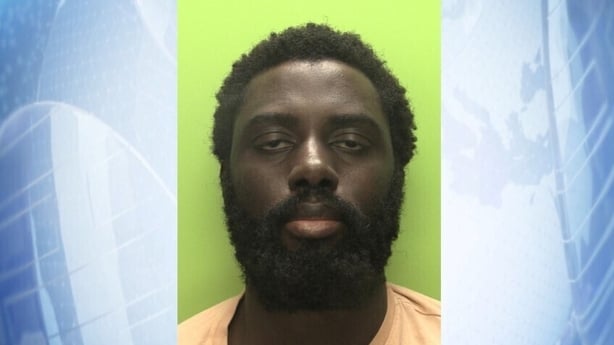Britain's Court of Appeal has refused to change the sentence of Valdo Calocane, who was given an indefinite hospital order for the manslaughter of three people in Nottingham last year.
Calocane was sentenced to an indefinite hospital order in January after admitting the manslaughter by reason of diminished responsibility of Barnaby Webber, Grace O'Malley-Kumar and Ian Coates, and the attempted murder of three others, in a spate of attacks in Nottingham last year.
Britain's Attorney General referred the sentence to the Court of Appeal in February, with lawyers arguing at a hearing that the 32-year-old should instead be given a "hybrid" life sentence, where he would first be treated for his paranoid schizophrenia before serving the remainder of his jail term in prison.
But three senior judges dismissed the bid this morning, stating that while Calocane's offences caused "unimaginable grief", his sentence was not unduly lenient as his paranoid schizophrenia was "the sole identified cause of these crimes".
Giving their judgment, Lady Chief Justice Sue Carr said: "There was no error in the approach adopted by the judge.
"The sentences imposed were not arguably unduly lenient."

Calocane was sentenced at Nottingham Crown Court for the fatal stabbings of Mr Webber and Ms O'Malley-Kumar - both 19-year-old students - and 65-year-old school caretaker Mr Coates in the early hours of 13 June last year.
After killing Mr Coates, Calocane stole his van and hit three pedestrians before being arrested.
Prosecutors later accepted his not guilty pleas to murder after medical evidence showed he had paranoid schizophrenia.
Lawyer Deanna Heer KC, representing the Attorney General's Office, told the Court of Appeal that the "extreme" crimes warrant "the imposition of a sentence with a penal element, an element of punishment".
Peter Joyce KC, for Calocane, said none of the offences would have been committed "but for the psychosis", and imposing a hybrid order would mean he would be "punished for being mentally ill".
Ms O'Malley-Kumar was the daughter of Irish-born, London-based consultant anaesthetist Sinead O'Malley.
Speaking outside the Royal Courts of Justice following decision, Dr Sanjoy Kumar, Ms O'Malley-Kumar's father, said: "The Attorney General's case has not been successful. This is disappointing, but not unexpected.
"The Nottingham attacks were entirely preventable. Nottinghamshire Police failed to produce a warrant for many months, a flawed investigation, no toxicology, over-reliance on psychiatric reports.
"Leicestershire Police failed to arrest Valdo Calocane. This is a failure of two police forces, a failure of the mental health trust, along with Nottinghamshire (County) Council as well.
"Missed multiple opportunities to prevent the Nottingham attacks and the murder of our children and Ian Coates is what has led us here today. We have continued to pursue agencies that failed us and hold them responsible for the Nottingham attacks, so that no other family is made to suffer like ours.
"We thank everyone for the outpouring of support for our brave and beautiful daughter, Grace."
Emma Webber, mother of victim Barnaby Webber, said: "Today's ruling comes as no surprise to the families of the Nottingham attack victims. It was inevitable and was not a review of anything other than the letter of the law as it stands.
"Despite the fact that the Attorney General herself feels that Valdo Calocane did not receive the appropriate sentence, today's outcome proves how utterly flawed and under-resourced the criminal justice system in the UK is. It also illustrates the need for urgent reforms in the UK homicide law.
"The fact remains, despite the words of the judge, that almost 90% of people serving hospital orders are out within 10 years and 98% within 20 years. In effect, the families now face their own life sentence of ensuring the monster that is Valdo Calocane becomes the next Ian Brady or Fred West and is never released.
"Given the failed investigation carried out by Nottingham Police, the weak prosecution put forward by East Midlands CPS and the over-reliance on doctors' reports, there was probably no other conclusion that could be made.
"The families have raised their concerns already with the Government with regard to obvious errors and omissions that have resulted in this tragedy.

